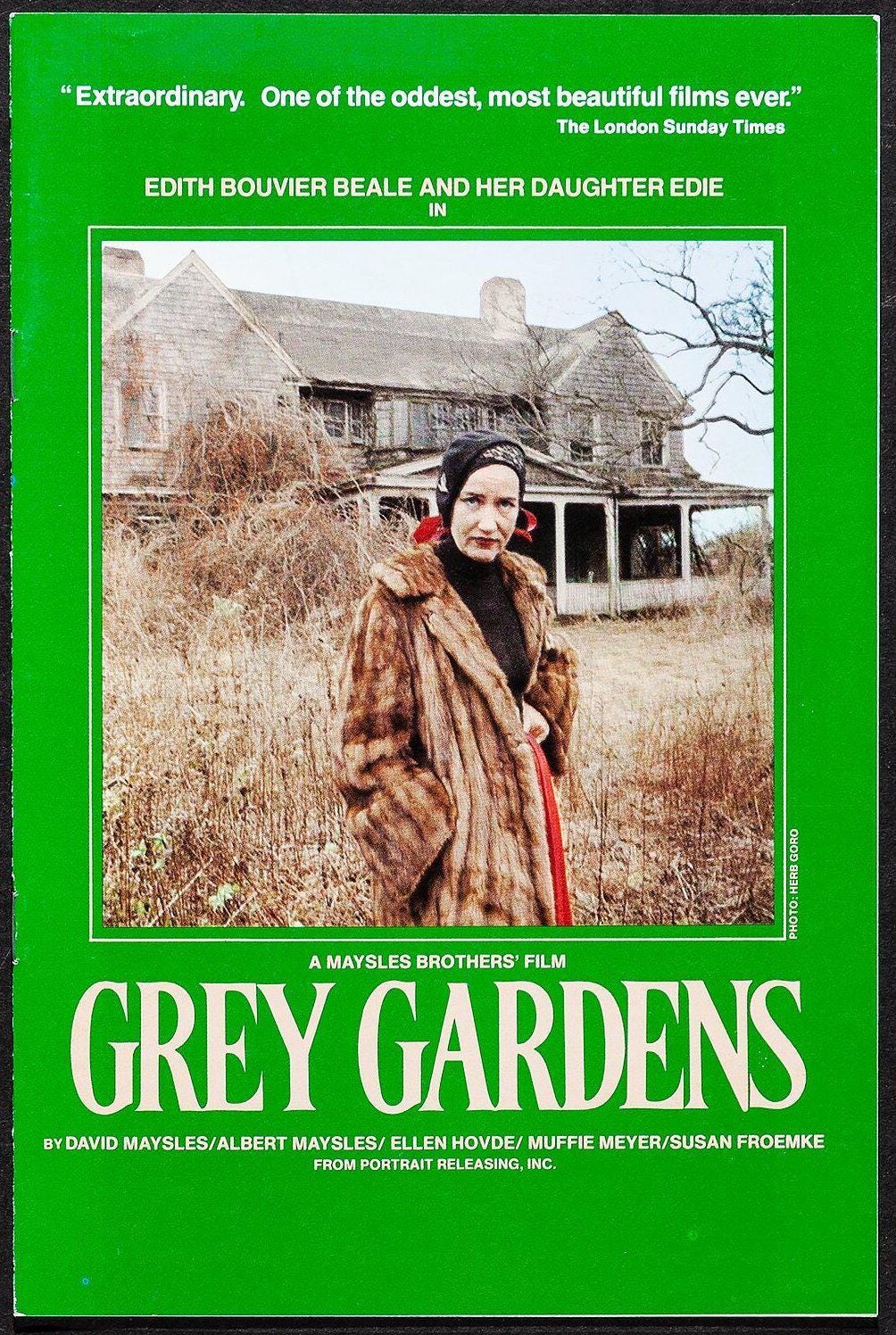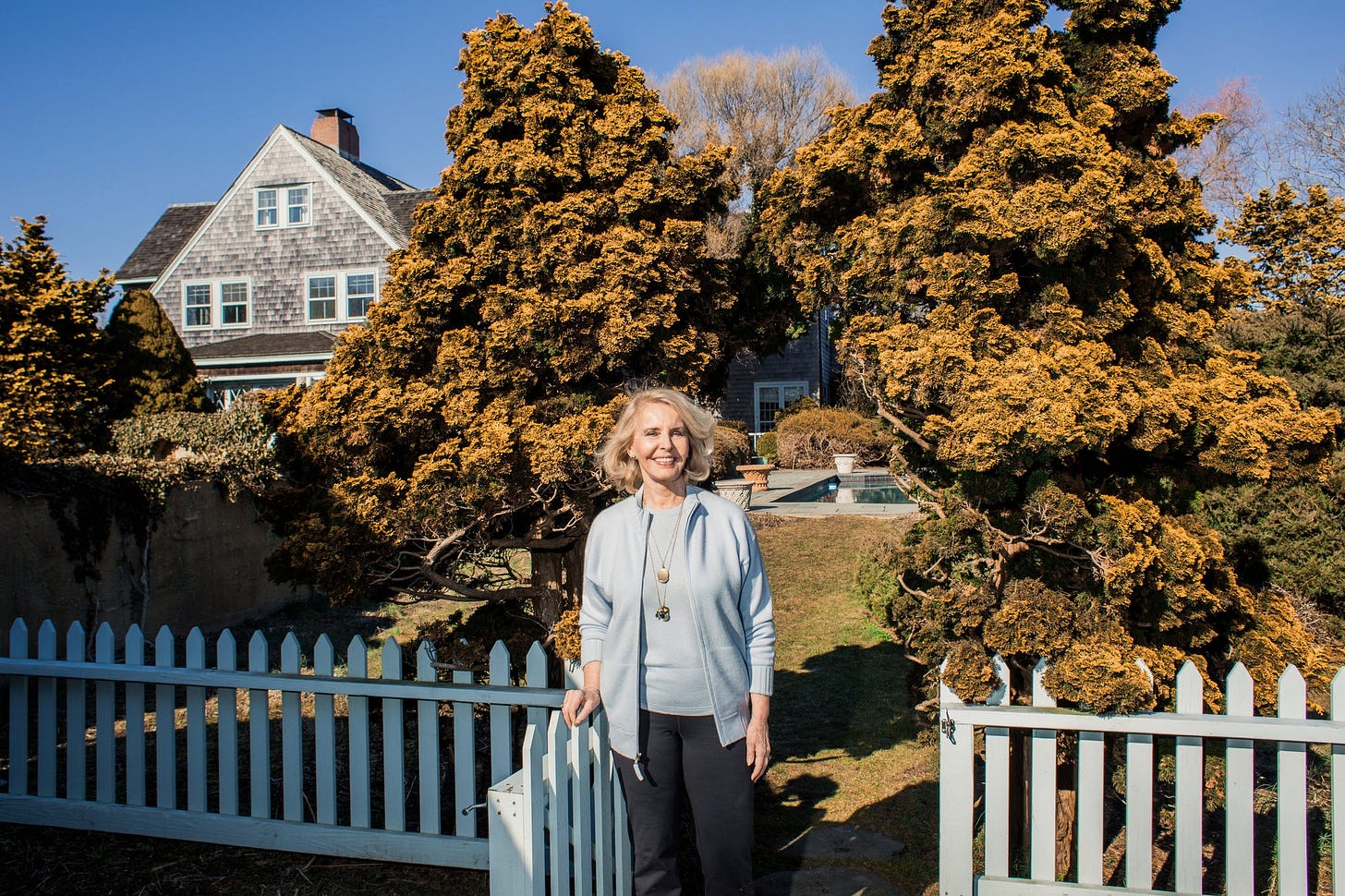An infamous mansion's second act
Washington Post icons meet East Hampton lore, and the result is surprisingly homey
A significant portion of my job is reading The Washington Post. I know, I am very fortunate. This week I was intrigued by an article from the magazine heralding the end of the D.C. elite social scene written by Sally Quinn. Quinn would know. A journalist and author in her own right, she was also married to legendary Post executive editor Ben Bradlee (Ya know, from the publishing of the Watergate scandal and the Pentagon Papers. That guy.) The pair were fixtures of the D.C. social scene for decades, entertaining the cultural who’s who of the time both in the District and in their East Hampton estate, Gray Gardens.
If you’re even somewhat interested in cult classic documentaries or Jackie Kennedy, Gray Gardens probably rings a bell. The estate belonged to the Bouvier Beale family, Jackie’s aunt, uncle, and first cousin. Phelan and Edith “Big Edie” Beale purchased the estate in 1923. Big Edie and her daughter, Little Edie, lived in the mansion full-time after Phelan left the family. With limited funds and even more limited interest in maintaining the property, the two, once New York socialites, descended into increasing squalor as near-hermits over a span of 50 years.
Their circumstances—fleas, raccoons, crumbling walls, no running water, and so, so many cats—became public when articles in the National Enquirer and New York Magazine were published about the isolated pair in the early 1970s. With the local health inspector pushing to condemn and raise the house, evicting the Bouvier Beale women, Jackie and her sister Lee stepped in to have the place cleaned, the roof replaced, and the structure stabilized to meet building codes.
But the Edies were still in poverty, the old house continued to fall apart, and the interior grew filthy and infested again. When talking to the filmmakers Albert and David Maysles about making a movie based on her privileged childhood, Little Edie took the brothers to Grey Gardens, and the stranger-than-fiction reality captured their attention more than the Beale’s former glamour.
The documentary Gray Gardens was released in 1976. Some critics call it exploitative, citing a perceived mental illness displayed by both women. But Albert Maysles contends that the Edies were simply eccentric and eager to assert themselves publicly while making some much needed money. Both women had once aspired to be singers and seem to revel in the attention of the cameras. The relationships explored are tense and tender in turn; I see the documentary as more of an exercise in empathy than in exploitation, and highly recommend watching it, followed by the 2009 film adaptation starring Drew Barrymore and Jessica Lange, which unwraps more of Little Edie’s backstory.
In 1979, not long after Big Edie’s death, Quinn and Bradlee purchased the derelict mansion from Little Edie under the agreement that they would not raise it. I love this 2009 piece Quinn wrote for Architectural Digest about her deep attraction to the house and determination to buy it, even though Bradlee thought the choice was insane. Quinn also talks about the end-of-National-Treasure-level moment she first went into the attic to find a bevvy of Beale family furniture that would serve as her roadmap in decorating the renovated home.
Not only is it a beautifully written and historically significant narrative with a great slideshow of images showing the restoration and interior design, but the piece hones in on qualities I respect immensely: Having vison, being able to see the bones of potential in something seemingly past its prime, and trusting one’s gut.
There is a particularly beloved line by Little Edie in the documentary: “But you see, in dealing with me, the relatives didn’t know that they were dealing with a staunch character, and I tell you, if there’s anything worse that dealing with a staunch woman…S-T-A-U-N-C-H. There’s nothing worse, I’m telling you. They don’t weaken, no matter what.”
Staunchly, and until next week,
Elizabeth
This newsletter is just one facet of Zhuzh, my platform dedicated to conscious consumption and making space for delight. I offer secondhand-and-vintage-based wardrobe and interior styling services, art curation, and super chill life coaching. Keep up with me on Instagram and learn more at www.zhuzhlife.com.






